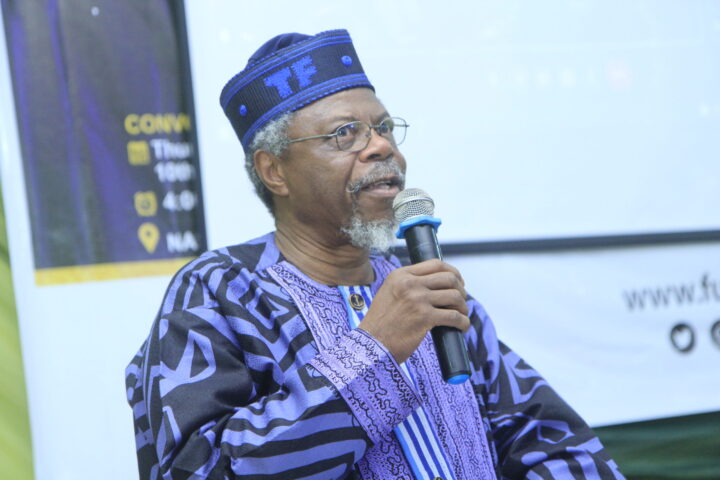Toyin Falola, professor of history at the University of Texas, says Nigerian educational institutions should look into ways of offering practical skills to graduates.
He said this on Thursday while delivering a lecture at an international colloquium which held at the Fountain University in Osogbo, the Osun capital.
Speaking on the lecture titled ‘The Comfort of Faith, The Insurgency of Hope, The Promise of Success’, he said there is a need for the government to address the “declining” interest of youths in seeking quality education, since without education, it will be difficult for the country to experience sustainable growth.
“The education of citizenry and the development of the human capital of any nation are central to applying permanent solutions to the various issues the nation faces. The few countries that have striven to develop socially, politically, and economically in the past century and have thus, gained relevance in the process, have done so on the back of a strong and effective educational system,” he said.
Advertisement
“These countries elevated the teaching and learning of its youth to a place of paramount importance. Finland and Singapore are classical examples of such countries that have made the education of their youths their national priorities.
“Unfortunately, in its case, the Nigerian society has been setting a dangerous precedent. Over the years, we have seen a decline in the willingness and motivation of Nigerians to seek quality education. Even amongst the small majority that still desires it, it is often perfunctory and mainly aimed at the certifications and grades that can afford them economic empowerment.
“While this desire is not wrong, the importance of education goes far beyond conferring students with the grades that will show them forth as skillful in any particular profession and enable them to derive financial benefits for themselves and society.
Advertisement
“Education equips the individual with the skills to analyse issues using available information and encourages the development of critical thinking that spurs the mind toward quality and independent judgment. Essentially, the educated mind relates with the world based on its appraisals of it rather than merely on the work of propaganda expounded by others.
“Education is central to the achievement of the previously discussed levers of proper social engineering, and has been described by scholars as to be the most effective tool of social engineering used anywhere in the world. If properly executed, education can be utilised to instill in citizens, especially the younger ones, the desirable tenets and traits that will spur the nation to greatness.
“Education is also particularly beneficial as it opens students up to a world of opportunities that they deem impossible or unachievable. In most places, higher education almost always translates to greater economic prosperity.
“If there is any strategy that has the potential to address inequality and bridge the gap between the haves and the have-nots, education will be a component of it. Not only are people exposed to an even socio-economic playing field, they are also less likely to blindly embrace political opinions and recognise blunt violence as the only tool at their disposal.
Advertisement
“Effective education presents opportunities that keep people gainfully and productively occupied, keeping them away from nefarious activities. Rather, in academia, students get to study the various challenges that the country faces and proffer solutions to them. For instance, groundbreaking research in science and technology can emanate from our institutions of higher learning.”
On his part, Amidu Sanni, vice-chancellor of the Fountain University, Osogbo, commended Falola for his efforts in improving the education sector.






